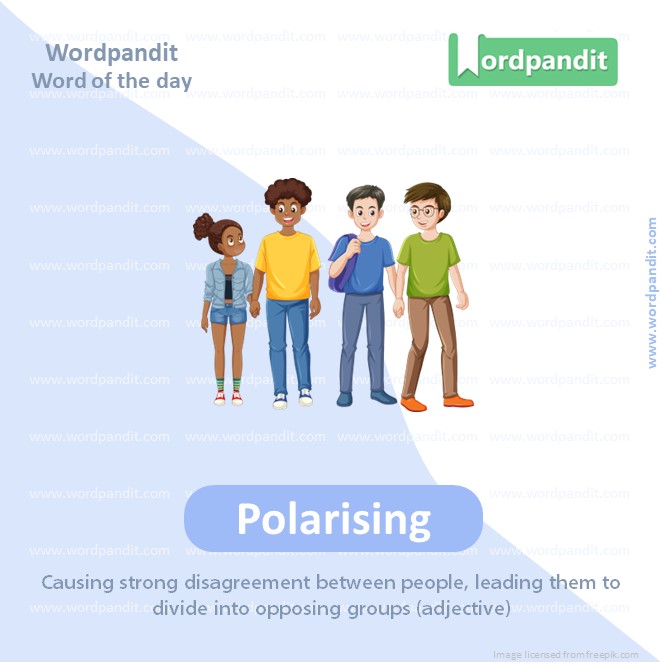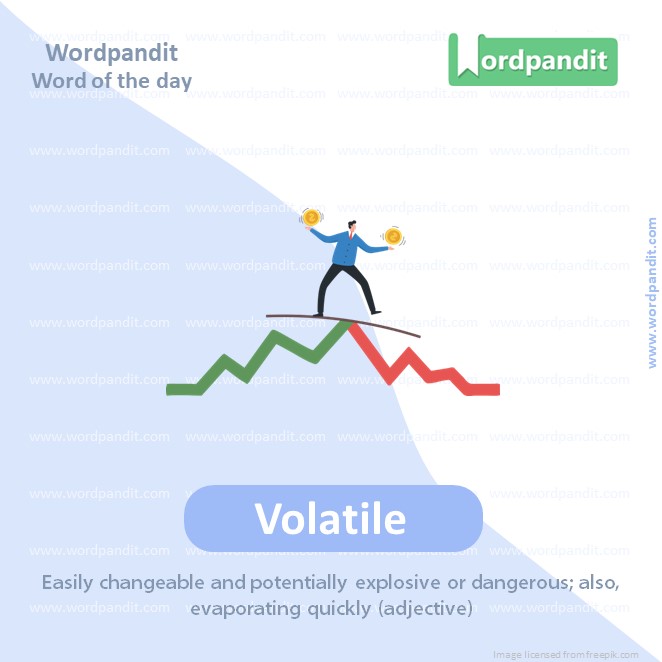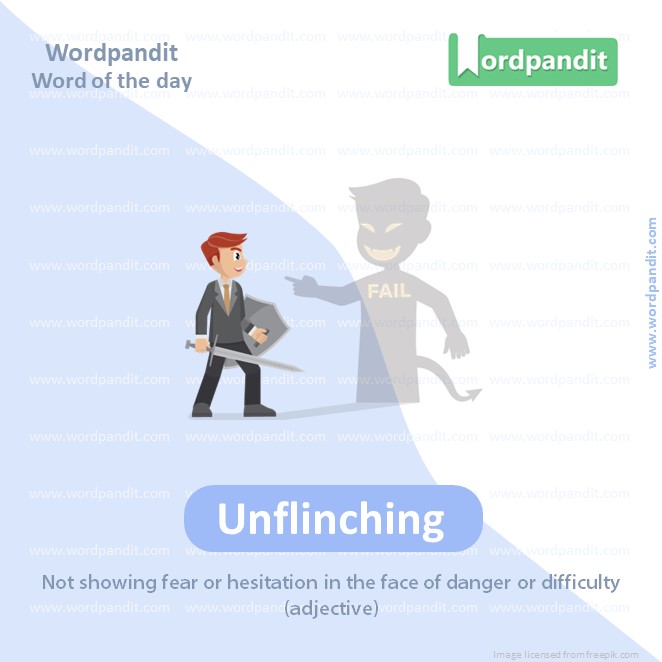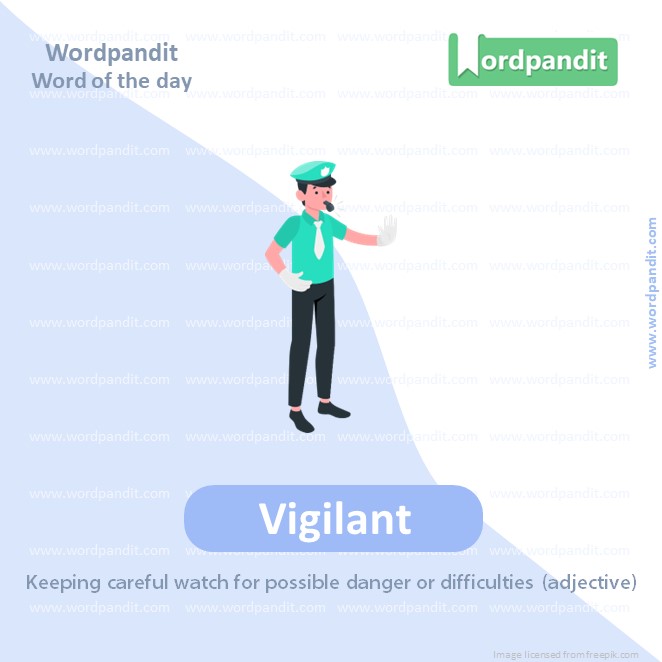Daily Vocabulary from Indian Newspapers and Publications
Welcome to Wordpandit’s Indian Vocabulary Hub
At Wordpandit, we understand the importance of staying rooted in the local context while expanding your language skills. This section focuses on enriching your vocabulary with words and phrases drawn from India’s leading newspapers and publications, ensuring you're learning vocabulary that is practical, relevant, and uniquely Indian.
Why Indian Sources Matter
We believe that the best way to master any language is by immersing yourself in local content. That’s why we carefully curate vocabulary from top Indian publications, including:
- The Hindu
- The Times of India
- The Economic Times
- Hindustan Times
- Live Mint
- The Indian Express
- And many others...
Stay Updated, Stay Relevant
With daily updates from Indian news sources, you’ll be consistently learning words that reflect the trends and shifts in Indian society and culture. Our focus is to provide vocabulary that enhances your understanding of the language in an Indian context.
How Wordpandit Supports Your Goals
Whether you’re preparing for exams, aiming to improve your professional communication, or simply want to stay connected with the latest Indian vocabulary, Wordpandit is here to guide you every step of the way.
Learn with a Practical Approach
Our interactive learning methodology includes real-world examples, engaging activities, and context-specific usage to ensure that every word becomes part of your active vocabulary.
Dive into Indian Vocabulary Today!
Why Choose Wordpandit?
Practical Learning: Focus on words you'll actually encounter in real-world reading, enhancing your comprehension and communication skills.
Diverse Content: From current affairs to scientific breakthroughs, our varied sources expose you to vocabulary across multiple domains.
Effortless Integration: Make Wordpandit a part of your daily routine. Just a few minutes each day can significantly boost your lexicon over time.
Your Path to Vocabulary Mastery
- Visit our Daily Vocabulary section regularly
- Explore new words and their usage in context
- Practice incorporating these words into your own writing and speech
- Track your progress as your vocabulary expands
Start Your Journey Today
Embark on your vocabulary enhancement journey with Wordpandit. By consistently engaging with our daily posts, you'll build a robust vocabulary that serves you well in academic, professional, and personal contexts.
Remember, a word a day keeps linguistic limitations at bay. Make Wordpandit your daily companion in the quest for vocabulary excellence!
WORD-1: Polarising
Context:
"The spike in tensions with Iran coincides with a polarising Pakistan general election just weeks away." - Hindustan Times
Explanatory Paragraph:
The word "polarising" refers to something that causes people to have very different and often opposing opinions or feelings. When a topic or person is described as polarising, it typically divides people into two contrasting groups — those who strongly support it and those who strongly oppose it. This division can create tension, debate, and conflict in public or private discourse.
Meaning: Causing division into two sharply contrasting groups or opinions (Adjective)
Pronunciation: PO-luh-rye-zing
Difficulty Level: ⭐⭐ Moderate
Etymology: Derived from the word "polarize," which originates from the French "polariser," related to "pôle" meaning "pole." The term has been in use since the 19th century to describe contrasting forces or sides.
Prashant Sir's Notes:
Think of "polarising" as something that splits opinions — like controversial leaders, social issues, or even sports teams. It helps to remember that it draws people to opposite "poles" of opinion — love or hate, support or rejection.
Synonyms & Antonyms:
Synonyms: divisive, contentious, controversial, inflammatory
Antonyms: unifying, agreeable, conciliatory, harmonious
Usage Examples:
- The leader’s speech was deeply polarising, stirring both praise and outrage.
- Social media can be a polarising space during election seasons.
- His views on immigration are considered highly polarising by both sides of the debate.
- The movie received polarising reviews, with critics either loving or hating it.
Cultural Reference:
"Few presidents have been as polarising as Donald Trump, whose policies and rhetoric sharply divided the American public." - Historical and political commentary
Think About It:
Why do you think certain topics become polarising even when they concern common human values?
Quick Activity:
List two issues or people you consider polarising in your country or community. Explain why they divide opinions.
Memory Tip:
Think of the word “polarising” as pulling people to opposite poles — like a magnet creating two ends: positive and negative.
Real-World Application:
Understanding polarising topics is crucial in politics, media, and business. Recognising these divisions can help in conflict resolution, public communication, and fostering more inclusive discussions.
WORD-2: Volatile
Context:
"The situation is volatile also because of the wider West Asia factor." - Hindustan Times
Explanatory Paragraph:
The word "volatile" is used to describe something that changes rapidly and unpredictably, especially for the worse. It often refers to situations that are unstable or prone to sudden upheavals — such as political unrest, markets, or even people's emotions. When something is volatile, it can shift from calm to chaos quickly, making it hard to predict or control.
Meaning: Likely to change suddenly and unpredictably, often becoming dangerous or out of control (Adjective)
Pronunciation: VOL-uh-tile
Difficulty Level: ⭐⭐ Moderate
Etymology: From Latin "volatilis," meaning "fleeting" or "flying," derived from "volare" – to fly. Originally used to describe substances that evaporate quickly, it later expanded to emotional and situational instability.
Prashant Sir's Notes:
When you hear “volatile,” think of a situation or person that can go off like a firecracker. It can apply to political tensions, financial markets, or someone’s mood swings. Unstable, unpredictable, explosive — that’s volatile!
Synonyms & Antonyms:
Synonyms: unstable, unpredictable, explosive, turbulent, erratic
Antonyms: stable, steady, predictable, calm, consistent
Usage Examples:
- The stock market remained volatile following the surprise announcement.
- Her volatile temper made it difficult for her team to work with her consistently.
- The political climate in the region is too volatile for foreign investment.
- Certain chemicals are volatile and must be stored in airtight containers.
Cultural Reference:
"Bitcoin’s value has proven to be extremely volatile, with wild price swings capturing the attention of investors and skeptics alike." - Financial Times commentary
Think About It:
Can volatility ever be a good thing? In which situations might rapid change lead to positive outcomes?
Quick Activity:
Write two sentences: one where "volatile" describes a political event, and another where it describes a person's behavior.
Memory Tip:
Think of “volatile” like a volcano — it might look calm, but it can erupt at any moment. Volatile = volcano-like!
Real-World Application:
Understanding volatility is essential in finance, diplomacy, and crisis management. Whether analyzing global markets or handling sensitive negotiations, the ability to respond to volatile situations can make a huge difference in outcomes.
WORD-3: Unflinching
Context:
"The dazzle of AI has blinded the BJP government to the state of the bottom 20 per cent because it has the unflinching support of a steel frame called RSS." - Indian Express
Explanatory Paragraph:
"Unflinching" describes a quality of strength and determination, especially in the face of difficulty or fear. Someone or something described as unflinching remains firm, unwavering, and resolute even under pressure. It suggests courage and commitment that does not falter — no matter how tough the situation gets.
Meaning: Not showing fear or hesitation in the face of danger or difficulty; firm and resolute (Adjective)
Pronunciation: un-FLIN-ching
Difficulty Level: ⭐⭐ Moderate
Etymology: From the prefix “un-” meaning “not” and “flinch,” which comes from the Old French *flenchir* meaning "to turn aside." Literally, unflinching means “not turning away.”
Prashant Sir's Notes:
Think of a soldier standing firm during battle, or a friend who stays by your side during tough times — that’s unflinching support. It reflects steadiness, loyalty, and bravery under pressure.
Synonyms & Antonyms:
Synonyms: steadfast, unwavering, resolute, determined, fearless
Antonyms: hesitant, wavering, timid, fearful, faltering
Usage Examples:
- She gave an unflinching account of the trauma she had endured.
- The judge remained unflinching despite public criticism.
- His unflinching loyalty to his values made him stand apart from others.
- The documentary offers an unflinching look at life in conflict zones.
Cultural Reference:
"Mahatma Gandhi’s unflinching commitment to non-violence inspired millions and changed the course of history." - Historical narratives on Indian Independence
Think About It:
What qualities make someone unflinching in the face of adversity — is it courage, conviction, or something more?
Quick Activity:
Write down a moment in your life when you, or someone you know, showed unflinching support or courage. What made it unflinching?
Memory Tip:
Break it into “un-” (not) + “flinch” (to back away). So, unflinching = not backing down!
Real-World Application:
Leaders, activists, and even close friends are admired for their unflinching stance during challenging times. The word is commonly used in politics, journalism, and personal relationships to show strength and reliability.
WORD-4: Donning
Context:
"Prime Minister Narendra Modi now donning the mantle of Hindu kingship, has the ability to get millions of people to play their parts for an audience of One, with all institutions, corporations, sects, civil society, media singing the same tune." - Indian Express
Explanatory Paragraph:
"Donning" means putting on clothing or adopting a particular role, appearance, or identity. While it literally refers to wearing garments, in a figurative sense it often means assuming a position, title, or attitude. In this context, "donning the mantle of Hindu kingship" suggests that the Prime Minister is adopting or embracing a symbolic role with significant cultural and political weight.
Meaning: To put on (an article of clothing) or to assume (a role or position) (Verb – Present participle)
Pronunciation: DON-ing
Difficulty Level: ⭐⭐ Moderate
Etymology: From Middle English "donnen," a contraction of "do on" — literally meaning to put on. The word has been in use since the 14th century.
Prashant Sir's Notes:
“Donning” is a stylish way to say “putting on.” But it’s not just clothes — it can also mean adopting a role or responsibility. Politicians don titles, actors don characters, and leaders don personas to influence the world.
Synonyms & Antonyms:
Synonyms: putting on, assuming, adopting, wearing
Antonyms: doffing, removing, shedding, discarding
Usage Examples:
- He was seen donning a traditional kurta for the cultural event.
- The actor is donning the role of a freedom fighter in his next film.
- She walked in confidently, donning a bright red power suit.
- By donning the mantle of leadership, she accepted the responsibility of the entire project.
Cultural Reference:
"Donning the cape and mask, Batman emerges not just as a man, but as a symbol." – Commentary on superhero identities
Think About It:
When someone 'dons' a role or identity, do they become that person — or is it just an act? Where do we draw the line?
Quick Activity:
Write a short sentence using “donning” to describe a transformation — real or symbolic — that someone might undergo.
Memory Tip:
Remember: “Don” = “Do On.” So, donning = doing something on — like clothes or a role!
Real-World Application:
In leadership, politics, and public speaking, individuals often "don" roles to connect with audiences, project confidence, or align with cultural narratives. Understanding the symbolic nature of this word helps interpret public performances and personas.
WORD-5: Vigilant
Context:
"The Opposition parties and the media may not be vigilant but the poor and middle classes — the 93 per cent — are watching and waiting." - Indian Express
Explanatory Paragraph:
To be "vigilant" means to stay alert and watchful, especially in situations where danger, trouble, or deception might occur. A vigilant person pays close attention and does not let their guard down, often out of a sense of responsibility or caution. In political and social contexts, vigilance is essential to safeguarding rights, detecting wrongdoing, and holding power accountable.
Meaning: Keeping careful watch for possible danger or difficulties (Adjective)
Pronunciation: VIJ-uh-luhnt
Difficulty Level: ⭐⭐ Moderate
Etymology: From Latin “vigilantem,” meaning “watchful” or “awake,” rooted in “vigil” meaning “awake” or “alert.” It has been part of English usage since the late 15th century.
Prashant Sir's Notes:
Think of a security guard on duty at night — eyes scanning, mind alert. That’s being vigilant. In everyday life, it means staying mentally sharp and aware, especially when you need to protect yourself or others from harm or manipulation.
Synonyms & Antonyms:
Synonyms: watchful, alert, attentive, cautious, observant
Antonyms: inattentive, careless, negligent, oblivious, unaware
Usage Examples:
- Parents need to remain vigilant when their children are playing near busy streets.
- The guards stayed vigilant throughout the night to prevent any breach of security.
- Cybersecurity experts urge users to be vigilant about suspicious emails.
- Even in peaceful times, citizens must stay vigilant about protecting their rights.
Cultural Reference:
"Eternal vigilance is the price of liberty." — A phrase often attributed to Thomas Jefferson, emphasizing the importance of being alert to protect freedom.
Think About It:
In a fast-paced world filled with distractions, how can individuals and societies train themselves to remain vigilant against subtle forms of manipulation or injustice?
Quick Activity:
List three areas of daily life where being vigilant can help you avoid problems or make better decisions.
Memory Tip:
“Vigilant” sounds like “vigil” — which is staying awake or alert, especially during the night. So, a vigilant person is always keeping a mental “vigil.”
Real-World Application:
Being vigilant is crucial in various real-world scenarios — from checking online privacy settings to spotting misinformation, from monitoring children’s safety to reporting suspicious behavior in public places. Vigilance empowers responsibility and awareness.



















